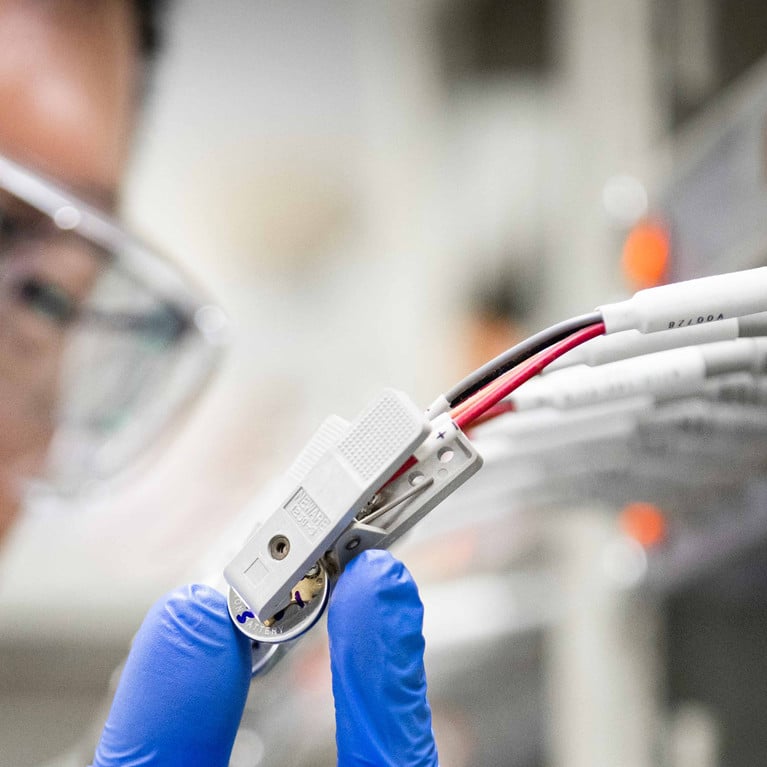- Posted on 30 Jun 2025
- 4 minutes read
Rail ballast made from recycled materials, recycled lithium-ion batteries and better superannuation decision making.
UTS research drawing on $2.9 million in industry-linked funding recently announced by the Australian Research Council promises to unlock a range of practical innovations.
UTS has been awarded almost $2.9 million in funding for five research projects under the Australian Research Council’s Linkage Projects grant program.
Linkage Projects grants support partnerships between researchers and business, community organisations and agencies to deliver real-world outcomes for Australia.
Deputy Vice-Chancellor (Research), Professor Kate McGrath, said the research supported through the Linkage program demonstrated the strong partnerships between UTS researchers and industry.
“The five research projects will each have a unique impact on their respective industry, whether its infrastructure, clean energy, psychology, Indigenous housing or superannuation. Congratulations to each of these outstanding research teams,” she said.
"Each of these Linkage projects has the potential to advance our economic base, improve our nation’s sustainability, care for our people and understand inherent inequities, and therefore drive equitable outcomes and opportunities for all."
The five projects were each awarded between $499,000 and $741,000:
Improving retirement decisions: Theory, evidence and policy solutions
Professor Mikhail Anufriev, Professor Adeline Delavande, Dr Nathan Kettlewell, Dr Maryam Naghsh Nejad, Mr Giacomo Tarantolo and Dr Shang Wu with UniSuper and Aware Super
Helping Australian retirees maximise their superannuation benefit by examining the strategies taken in converting from the accumulation to pension phase. This will use surveys, experiments and controlled trials to obtain evidence around how well retirees manage their superannuation and test policies that may improve decumulation strategies.
Large language model-based client agents for psychotherapy simulation
Professor Ling Chen, Professor Farookh Hussain and Dr Qusai Hussain with Cyber Clinic
Developing an intelligent system for simulating client behaviour in psychotherapy. Innovative AI methods will be developed to address the challenges of simulating client personas that reflect real-world people and ensuring consistency across multiple therapy sessions.
Social and architectural histories of Aboriginal housing in regional NSW
Dr Campbell Drake, Associate Professor Kirsten Thorpe, Dr Timothy O'Rourke, Professor John Evans, Adjunct Professor Matthew Connell, Mr Nathan Sentence, Ms Narelle Cook and Mrs Aristea Onisforou with Powerhouse Museum, NSW Aboriginal Land Council and National Indigenous Australians Agency
Generating new knowledge on the social significance and architectural history of Aboriginal housing on former reserves in regional NSW from the 1950s to 2000. Place-based collections of archival photographs from a range of sources will be shared in community-hosted forums to elicit narratives and commentaries on housing from community members, re-coding the images with knowledge at risk of loss.
Use of recycled materials to reduce track degradation due to impact loads
Professor Buddhima Indraratna, Professor Cholachat Rujikiatkamjorn, Professor Ngamta Thamwattana, Dr Trung Ngo, Dr Di Wu, Professor Matthew Coop, Dr Richard Kelly and Mr Dipendra Badu with Transport for NSW, SMEC Australia, Bridgestone Corporation and Sicut Enterprises
Exploring the benefits of an energy-absorbing layer of ballast mixed with recycled rubber granules together with sleepers made from recycled plastic and glass fibres. The enhanced track performance with reduced ballast breakage and vibration will be examined on large-scale laboratory testing and field trials, and simulated using innovative computer and digital modelling.
Upcycling cathode materials from end-of-life lithium-ion batteries
Professor Hao Liu, Dr Bing Sun, Dr Yufei Zhao, Dr Qinfen Gu, Dr Shuwei Wan with the Australian Synchrotron (ANSTO) and HEC Group
Exploring advanced technologies to cost-effectively upcycle cathode materials from spent lithium-ion batteries. This cathode upcycling will lead to the development of novel technologies for efficient material recovery.


